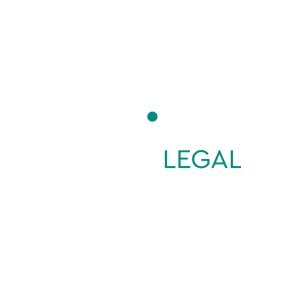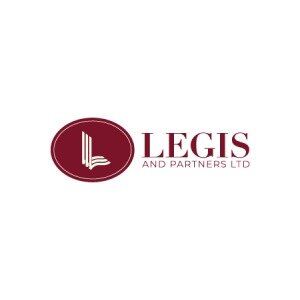Best Energy, Environment & ESG Lawyers in Mauritius
Share your needs with us, get contacted by law firms.
Free. Takes 2 min.
Or refine your search by selecting a city:
List of the best lawyers in Mauritius
About Energy, Environment & ESG Law in Mauritius
Energy, Environment & ESG (Environmental, Social, and Governance) law in Mauritius is an evolving field designed to promote sustainable development, environmental protection, efficient energy use, and responsible business practices. Mauritius, as a small island developing state, faces unique challenges related to energy dependency, environmental risks, and the need for sustainable growth. The legal framework incorporates both national priorities and international commitments, aiming to balance economic development with the protection of natural resources and the wellbeing of communities. The application of ESG criteria in business and investment is gaining importance as companies and investors in Mauritius recognize the value of aligning with global sustainability standards.
Why You May Need a Lawyer
Seeking legal advice in the field of Energy, Environment & ESG in Mauritius can be crucial for individuals, businesses, and organizations navigating complex regulations or facing compliance challenges. Common situations where legal assistance may be needed include:
- Setting up renewable energy projects and obtaining required permits
- Ensuring business operations comply with environmental protection laws
- Responding to environmental impact assessments and audits
- Resolving disputes regarding pollution, land use, or resource management
- Drafting or reviewing contracts related to energy production or supply
- Advising on ESG reporting, disclosure obligations, and investor requirements
- Addressing community or stakeholder complaints related to environmental and social impacts
- Handling mergers, acquisitions, or financing where ESG risks and compliance play a role
- Dealing with penalties, enforcement actions, or litigation brought by regulatory authorities
Local Laws Overview
Several key pieces of legislation and regulations shape the Energy, Environment & ESG landscape in Mauritius:
- Environment Protection Act 2002: The cornerstone of environmental regulation, this Act provides for the protection and management of the environment. It sets out requirements for environmental impact assessments and penalties for non-compliance.
- Energy Efficiency Act 2011: This Act encourages energy conservation and establishes standards for energy efficiency, including labelling and audit requirements for certain sectors.
- Electricity Act 2005: Governs the generation, transmission, and distribution of electricity in Mauritius, with a focus on promoting renewable energy sources.
- Renewable Energy Regulations: These provide a framework for licensing, incentives, and grid access for renewable energy projects.
- Occupational Safety and Health Act 2005: Contains provisions relevant to the health, safety, and welfare of employees, intersecting with environmental and social governance concerns.
- ESG Reporting Initiatives: There is increasing encouragement, both from local authorities and through market expectations, for companies to adopt ESG reporting practices. Though not fully legislated, ESG-related disclosures may be expected by banks, investors, and international partners.
- International Agreements: Mauritius is party to global agreements such as the Paris Agreement on climate change and several conventions on biodiversity and marine protection, influencing local implementation and compliance norms.
Frequently Asked Questions
What is an Environmental Impact Assessment in Mauritius?
An Environmental Impact Assessment (EIA) is a process required for certain projects to evaluate potential environmental effects before development begins. Under the Environment Protection Act, an EIA license must be obtained for projects likely to have significant impacts on the environment.
When is an EIA required?
An EIA is required for activities or projects listed in the Environment Protection Act or those that the authorities determine may have significant environmental consequences. Examples include construction, industrial activities, and energy projects.
What are the main renewable energy sources promoted in Mauritius?
Mauritius is actively promoting wind, solar, biomass, and hydro power as key renewable energy sources. The government offers incentives and regulatory frameworks to encourage investment in these areas.
Is ESG reporting mandatory for companies in Mauritius?
ESG reporting is not yet mandatory for all businesses in Mauritius, but it is increasingly encouraged, especially for larger companies and those seeking international investment. Certain sectors and listed companies may be subject to specific disclosure requirements.
What penalties exist for violating environmental laws in Mauritius?
Penalties can range from fines and orders to cease activities, to criminal prosecution for severe offences. The specific penalty depends on the nature and seriousness of the violation.
How can I dispute an environmental enforcement action?
You can appeal to the Environment Appeal Tribunal or pursue legal remedies in the Supreme Court of Mauritius. Legal representation is recommended to navigate the process.
What is the role of the Central Electricity Board?
The Central Electricity Board (CEB) is the main authority responsible for electricity generation, transmission, and distribution in Mauritius. It oversees the integration of renewable energy into the national grid.
Are there incentives for investing in green technology?
Yes, the government has introduced various fiscal incentives, grants, and low-interest loans to promote investment in green technology and renewable energy projects.
Can communities participate in environmental decision-making?
Yes, through public consultations required during the EIA process and by submitting objections or comments to relevant authorities regarding proposed projects.
What standards are used for ESG benchmarking in Mauritius?
Mauritian companies often use international standards such as the Global Reporting Initiative (GRI), Sustainability Accounting Standards Board (SASB), or United Nations Sustainable Development Goals (SDGs) for ESG benchmarking, while adapting them to local conditions.
Additional Resources
For further information and assistance in Energy, Environment & ESG matters in Mauritius, the following organizations and bodies can be valuable resources:
- Ministry of Environment, Solid Waste Management and Climate Change
- Central Electricity Board (CEB)
- Energy Efficiency Management Office (EEMO)
- Mauritius Renewable Energy Agency (MARENA)
- Board of Investment Mauritius (Economic Development Board)
- Mauritius Chamber of Commerce and Industry (MCCI)
- Environmental Protection and Conservation NGOs
- Legal Aid Mauritius
- Supreme Court of Mauritius
- Independent legal practitioners specializing in Energy, Environment & ESG law
Next Steps
If you believe you need legal assistance in Energy, Environment & ESG matters in Mauritius, consider the following steps:
- Identify your specific issue or legal question, gathering any relevant documents or evidence
- Contact a qualified lawyer or law firm with expertise in energy, environment, or ESG law in Mauritius
- Consult relevant government agencies or regulatory bodies for preliminary information or official guidance
- Attend any required public consultations or submit comments if your issue involves a regulatory process
- Engage in dialogue with stakeholders such as project developers, community groups, or business partners
- Document all communications and steps taken as you seek legal advice
- Prepare for meetings with your lawyer by outlining your objectives and questions
Acting early and seeking tailored legal advice ensures your interests are protected and that you remain compliant with local laws and international standards in the field of Energy, Environment & ESG in Mauritius.
Lawzana helps you find the best lawyers and law firms in Mauritius through a curated and pre-screened list of qualified legal professionals. Our platform offers rankings and detailed profiles of attorneys and law firms, allowing you to compare based on practice areas, including Energy, Environment & ESG, experience, and client feedback.
Each profile includes a description of the firm's areas of practice, client reviews, team members and partners, year of establishment, spoken languages, office locations, contact information, social media presence, and any published articles or resources. Most firms on our platform speak English and are experienced in both local and international legal matters.
Get a quote from top-rated law firms in Mauritius — quickly, securely, and without unnecessary hassle.
Disclaimer:
The information provided on this page is for general informational purposes only and does not constitute legal advice. While we strive to ensure the accuracy and relevance of the content, legal information may change over time, and interpretations of the law can vary. You should always consult with a qualified legal professional for advice specific to your situation.
We disclaim all liability for actions taken or not taken based on the content of this page. If you believe any information is incorrect or outdated, please contact us, and we will review and update it where appropriate.
Browse energy, environment & esg law firms by service in Mauritius
Mauritius Attorneys in related practice areas.
Browse energy, environment & esg law firms by city in Mauritius
Refine your search by selecting a city.
















